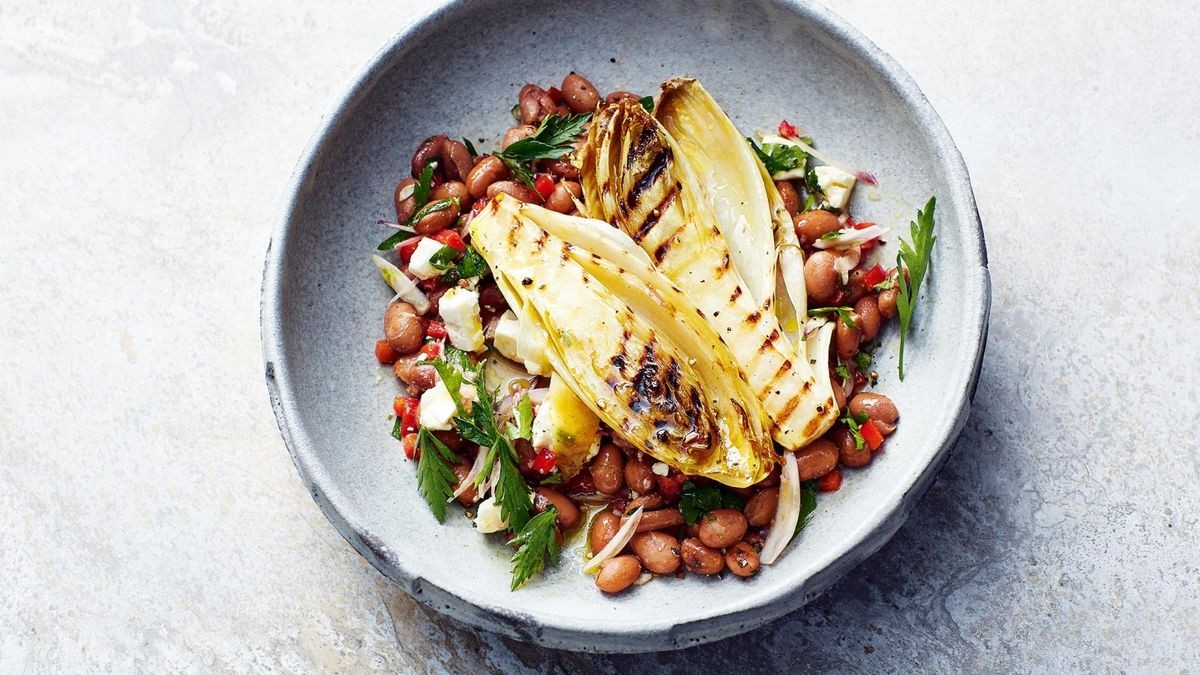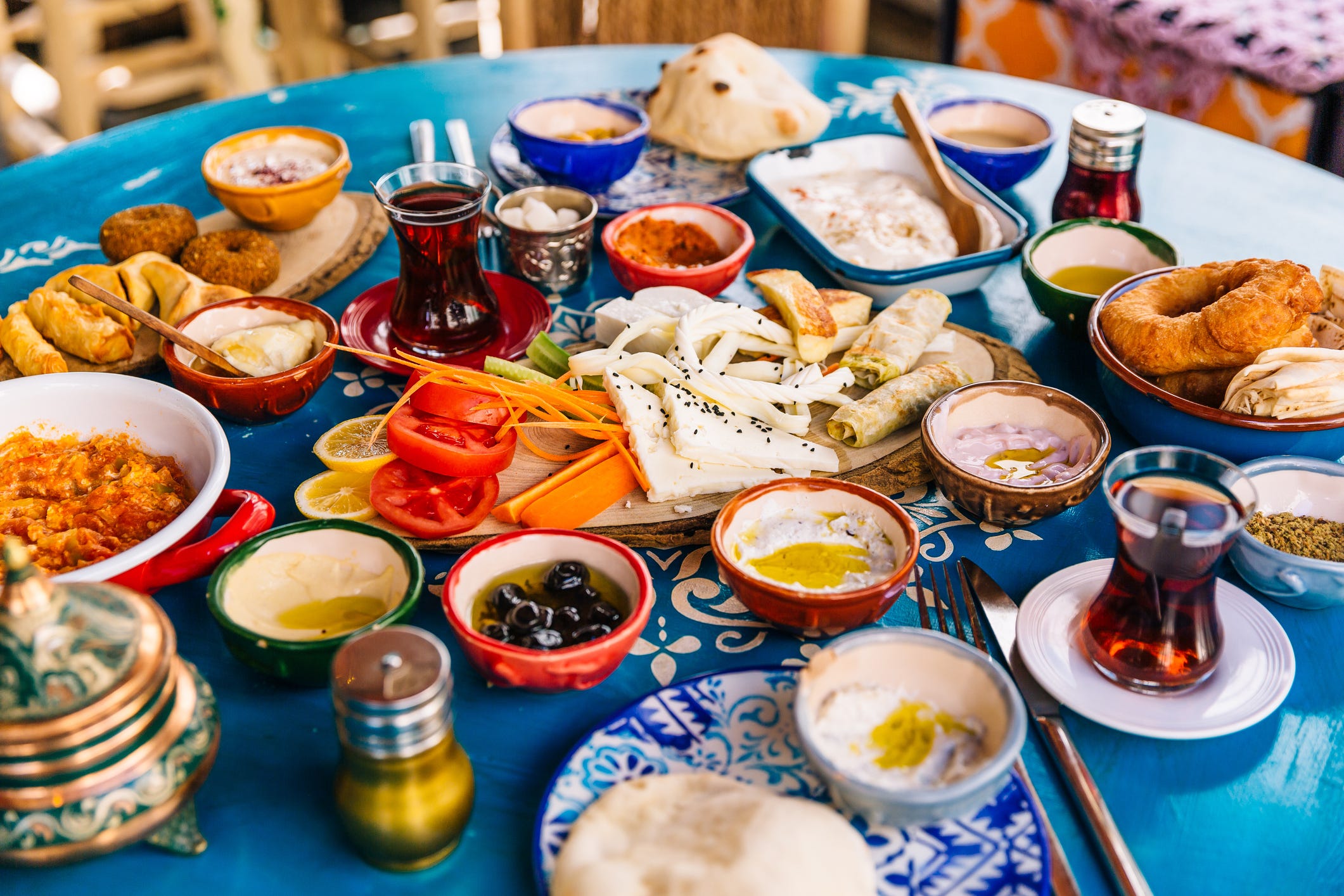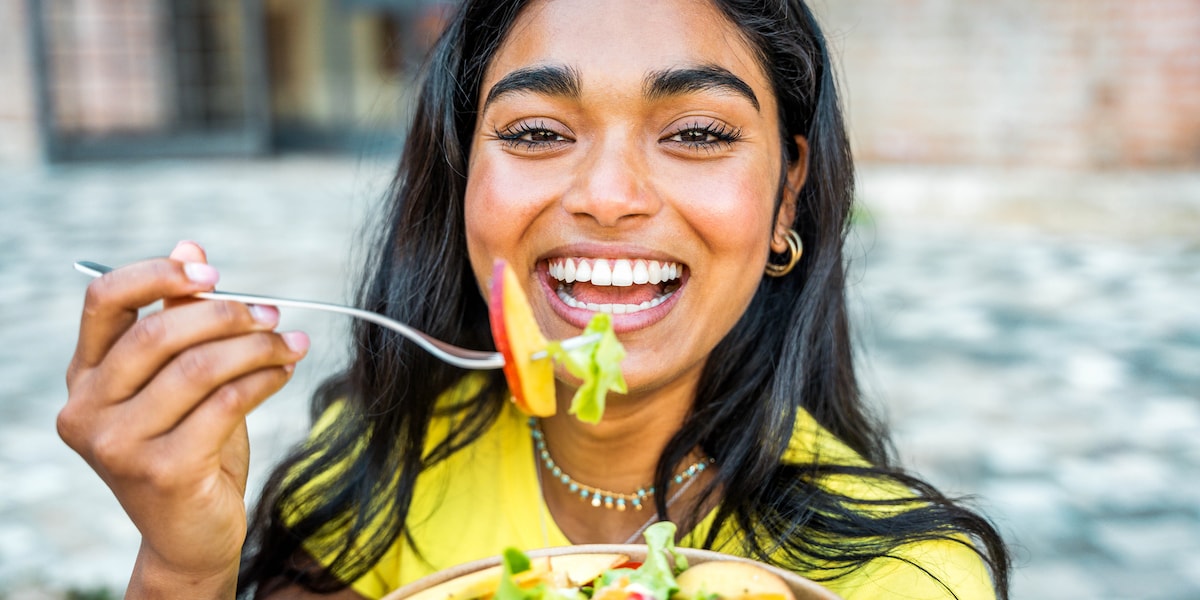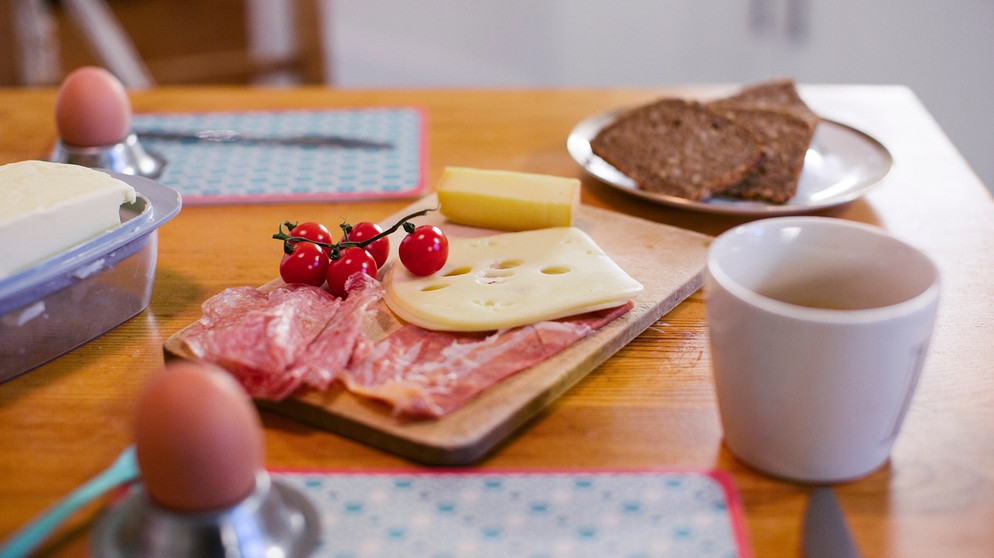Hamburg. New recommendations from the German Nutrition Society. It advises eating fewer eggs, milk and meat. What Dr. Riedl says about it.
- New recommendation: Only one egg per week instead of per day
- Replace some animal protein with legumes
- Riedl: “There is no safe amount of alcohol”
Only one more Do we all have to rethink now? The German Society for Nutrition (DGE) recently issued new recommendations on the consumption of dairy, meat and plant products as well as sweets and snacks. The nutritional doctor Dr. Matthias Riedl classifies them.
“I think what the professional association has now recommended is, on the whole, very good,” he says in the podcast “Dr. Matthias Riedl. This is how healthy nutrition works.” But because many media outlets are literally relying on the statements on Egg consumption the nutritional doctor suspects that because most Germans had fallen victim to the other statements, they did not really get through to them.
Nutritionist explains: The new recommendations – what is now considered healthy
Riedl thinks that looking at eggs is almost pathological, because the all-clear has long been given: “Eggs do not increase cholesterol levels significantly or almost not at all, sometimes they even lower them.”
The new recommendation to only eat one egg per week is a bit over the top, says the nutritionist. The recommendation only exists because the DGE is now also taking ecological aspects into account. “But it is a society for healthy nutrition and not a German society for healthy and ecological nutrition,” criticizes Riedl, himself a passive member of the DGE.
Dr. Matthias Riedl: Animal products are part of species-appropriate nutrition
Of course, we should all strive to behave ecologically and not harm the world too much and not consume too many animal products, says the nutritionist. “But as a doctor, I have an obligation to ensure that people are well fed, and unfortunately that includes animal products. Human nutrition that is appropriate for the species requires animal products, whether I eat beetles or pork. We need something from animals.” He is clearly against factory farming, however.
He believes that trying to put the Germans off is a tactical mistake. This leads to reactance among many citizens, to a feeling of restrictions: “Many say: Oh, now leave me alone with your recommendations!” It is questionable whether this will achieve anything, says Riedl.
Nutritional recommendation: 75 percent plant-based foods
In this discussion about eggs, the most important recommendation has been lost: 75 percent of our diet should be plant-based. “This takes into account the fact that we were originally pure vegetarians. We are not actually hunters, we are gatherers, we only ate animal foods. 75 percent plant-based – that corresponds to our metabolism from before.”
These are the recommendations of the German Nutrition Society:
- Two servings daily milk and milkproducts with a total of 500 grams – one portion less than in previous recommendations.
- Meat and sausage consumption: maximum 52 grams per day or maximum 300 grams per week, compared to previous 300 to 600 grams per week.
- Legumes and nuts are becoming more of a focus. It is recommended to consume 125 grams of pulses (e.g. peas, beans, lentils) per week and 25 grams of nuts daily.
- At least five servings daily Fruit and vegetables. There are no longer any specific guidelines as to how many portions should be vegetables and how many should be fruit.
- A egg per week, for example as a breakfast egg. In addition, there are foods that contain processed eggs, such as pasta or cakes.
- Consumption of sweet, salty and fatty foods to a maximum of eight percent of daily energy intake.
DGE recommendations: 500 grams of dairy products per week instead of 700 grams
Riedl gives the following assessment of the new DGE recommendations: “Instead of 700 grams, there should only be 500 grams of dairy products. That’s relatively high,” says the nutritionist. Although he has enjoyed drinking half a glass of milk since he was a child, he recommends healthier alternatives such as yogurt or kefir. Cheese also falls into the category of dairy products.
He thinks that 52 grams of sausage or meat per day, or a total of 300 grams per week, is a good amount. “200 is enough. I found 300 to 600 grams to be far too much, so there is no need for that much meat.”
Legumes replace animal protein and are extremely healthy
Anyone who eats less protein from animal products because they are reducing their dairy and meat consumption must then cover their protein requirements with plant-based protein, says the nutritionist. “This increases the value of pulses. But be careful! Start slowly, otherwise you will get a lot of flatulence.” For peas, beans and lentils, consumption of 125 grams per week is recommended. “Vegetables, pulses, mushrooms, nuts and seeds are the foundation of our diet, that is the basis, meat is the top,” says the medical director of Medicum Hamburg.
There is no need to advertise fruit, “people eat it anyway because it’s sweet. We can live without fruit, but not without vegetables,” says Riedl. For vegetables, on the other hand, there is no upper limit.
Dr. Riedl: Stay away from sweet, salty and fatty foods, advises the DGE
You should avoid sweet, salty and fatty foods as much as possible. “Reduce the portion size,” Riedl advises those who cannot do without them. “So that you don’t get really hungry in the evening in front of the TV, you really have to eat until you’re full in the evening, even if that means eating an egg as well.”
We still have to look at the drinks. The DGE recommends unsweetened tea and water. The nutritionist supports this, but advises spicing up the water and tea a bit, for example with herbs. But keep your hands off soft drinks. “Even one can a day can damage your health and increase the risk of fatty liver and obesity. Please no energy in the drinks, that will make you fat, and please no sweeteners in them, that will disrupt your intestinal flora,” says the expert.
Riedl on alcohol: “There is no safe amount of alcohol!”
Riedl also warns against regular alcohol consumption: “I’m not saying you shouldn’t, but the sad news is that there is no safe amount of alcohol. Unfortunately, that’s the way it is. Alcohol damages the liver, and in higher doses the nerves, is associated with a higher risk of cardiac arrhythmia and with an increasing risk of cancer because alcohol damages tissue. “You can’t say that this amount of alcohol is completely harmless. That’s why you just have to keep it low.”
more on the subject
- Weight loss injection: Dr. Riedl explains how it works and what it costs
- Dr. Matthias Riedl: Why a skull should be printed on energy drinks
- Nutrition Doc: Beautiful through Glow Coffee? Dr. Riedl exposes marketing tricks
Riedl finds it problematic that the DGE developed the recommendations for healthy people aged 18 to 65. “This raises the question of who is still healthy in Germany? At the age of 60, almost 80 percent have high blood pressure, a third have diabetes or the precursor, a third have a mental disorder, and ten percent have an autoimmune disease.” Ultimately, these are recommendations for a minority.
Recipe for grilled chicory with bean salad

Grilled chicory with bean salad from: Dr. Matthias Riedl: 100 ingenious tricks for a healthy diet, GU, 2024.
© Photo: Maria Grossmann, Monika Schuerle Food styling: Lukas Grossmann | Gräfe und Unzer / Grossmann & Schürle
For 2 people | 20 min. preparation Nutritional value per portion: approx. 380 kcal, 16 g protein, 23 g fat, 20 g carbohydrate
Ingredients:
200 g borlotti beans (or white beans; from the jar), 1 red pepper, 1 shallot, 75 g sheep’s cheese (eg feta), 3 tbsp chopped parsley, 3 tbsp olive oil, 1 tbsp white balsamic vinegar, ½ tsp liquid honey, salt, pepper, 4 small chicory | sea salt 1 tbsp lemon juice 1
Preparation:
1. For the salad, rinse the beans in a sieve and drain. Wash the peppers, halve them, remove the white membranes and seeds, and dice the halves. Peel the shallot, quarter it and cut it into thin strips. Put the beans, peppers and shallots in a salad bowl. Crumble the feta and add with the parsley.
2. For the vinaigrette, mix 1½ tablespoons of oil with vinegar and honey, season with salt and pepper and pour over the salad.
3. Wash the chicory, cut in half and remove the hard stalk. Brush the halves with the remaining oil and sprinkle with a little sea salt. Roast on the grill or in a grill pan at medium heat for 5-6 minutes on each side.
4. To serve, divide the salad between plates and place the grilled chicory on top, drizzle with lemon juice. If you want to take the chicory home, grill it on site.
Benefits: By making a healthy contribution to your summer barbecue, you can avoid the typical sugar, carbohydrate and fat traps that lurk in pre-made potato salads, meat marinades and herb baguettes. Instead of meat and sausages with bad fats, you can enjoy the health benefits of grilled vegetables. If you make your own grilled food, you can also save on sugar, additives and easily digestible carbohydrates.

Dr. Matthias Riedl: 100 ingenious tricks for a healthy diet, GU, 2024, 28.99 euros.
© GU Verlag | GU Publishing





